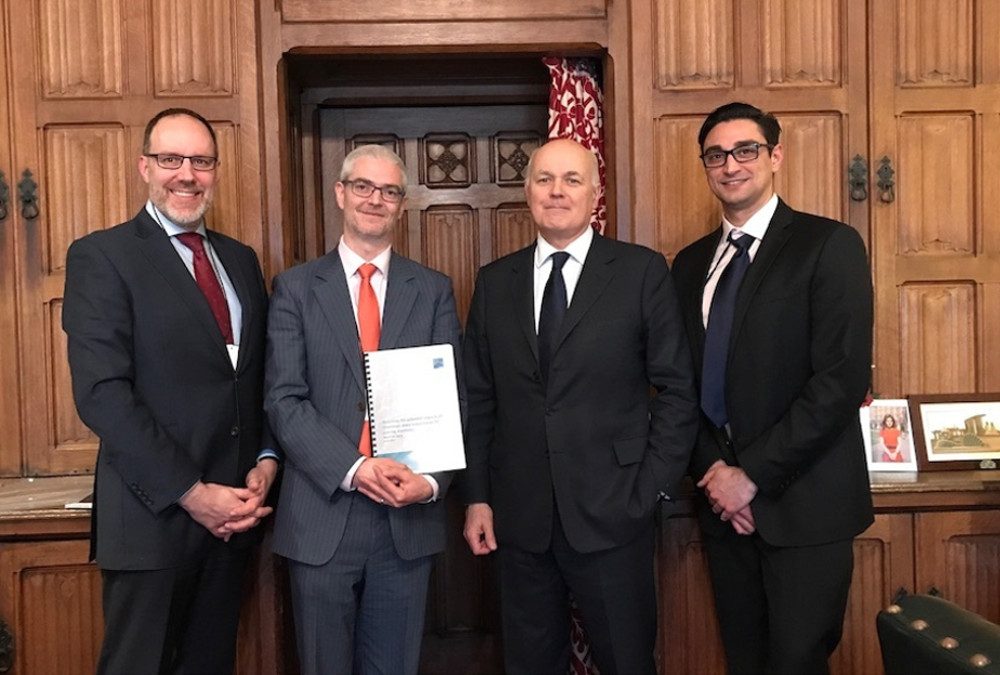A fairer balance of gaming products on the high street is gaining traction within Westminster. A Bacta delegation last week met with former Tory leader Iain Duncan Smith to seek support for its £2 stake limit for FOBTs. The trade body did not leave Parliament disappointed.
A senior Bacta delegation comprising national president Gabi Stergides and chief executive John White, supported by Oliver Hogan, head economist at the influential Centre for Economics and Business Research (CEBR), met with former leader of the Conservative Party, Iain Duncan Smith, last week to present the findings of CEBR analysis on the economic impact on bookmakers of a reduction in FOBT stakes to £2.
The meeting, which was held at Duncan Smith’s offices in the Palace of Westminster, explained Bacta’s key arguments that the impact of reducing the FOBT stake to £2 could be up to 47 percent lower than suggested by the government’s initial impact assessment and could also be offset by the reduction in the fiscal costs of addressing the significant social problems caused by FOBTs.
Expanding on the meeting, Gabi Stergides said: “Our message, which was well received by Mr Iain Duncan Smith, was the cost of a clampdown on fixed-odds betting terminals is being exaggerated and the research undertaken by the CEBR demonstrates this in no uncertain terms.”
He added: “The current FOBT stake of £100 is fifty times higher than that of other gaming machines found on the high street and in 2015/6, there were over 230,000 sessions in which an individual lost more than £1,000. Factor in the impact on areas funded by the tax payer such as welfare services, absences from work, housing and the criminal justice system and the social cost of the FOBT stake, is an estimated £210m/year – more than £1bn since 2013.”
John White welcomed the opportunity to develop the holistic arguments which support a reduction in FOBT stake to £2. “There is the appetite to reduce the FOBT stake and one which is founded on sound economic and social arguments,” he said. “We have demonstrated the economic costs to the bookmakers have been grossly exaggerated: furthermore, the economic model is not complete until you take into account the human and social costs, a bill that the state and by extension the tax payer has to pick up. As the CEBR report argues, once the potential wider benefits to society that could be realised if a B2 stake reduction leads to a declining prevalence or severity of problem gambling, the case for a £2 maximum stake is even more favourable.”




